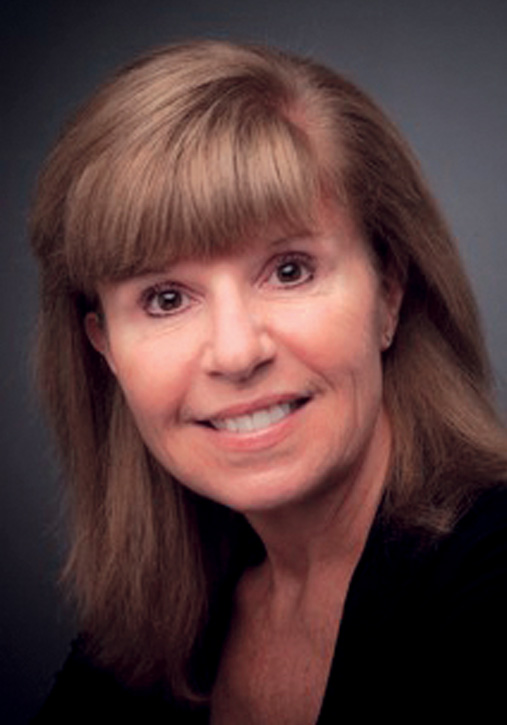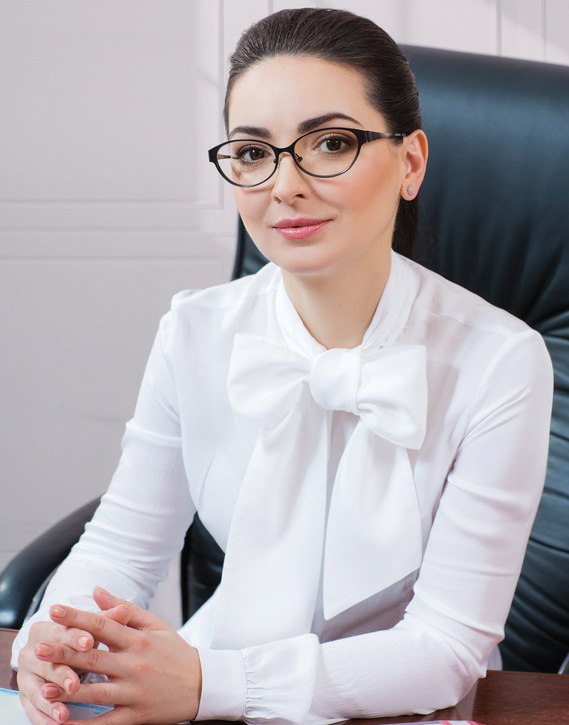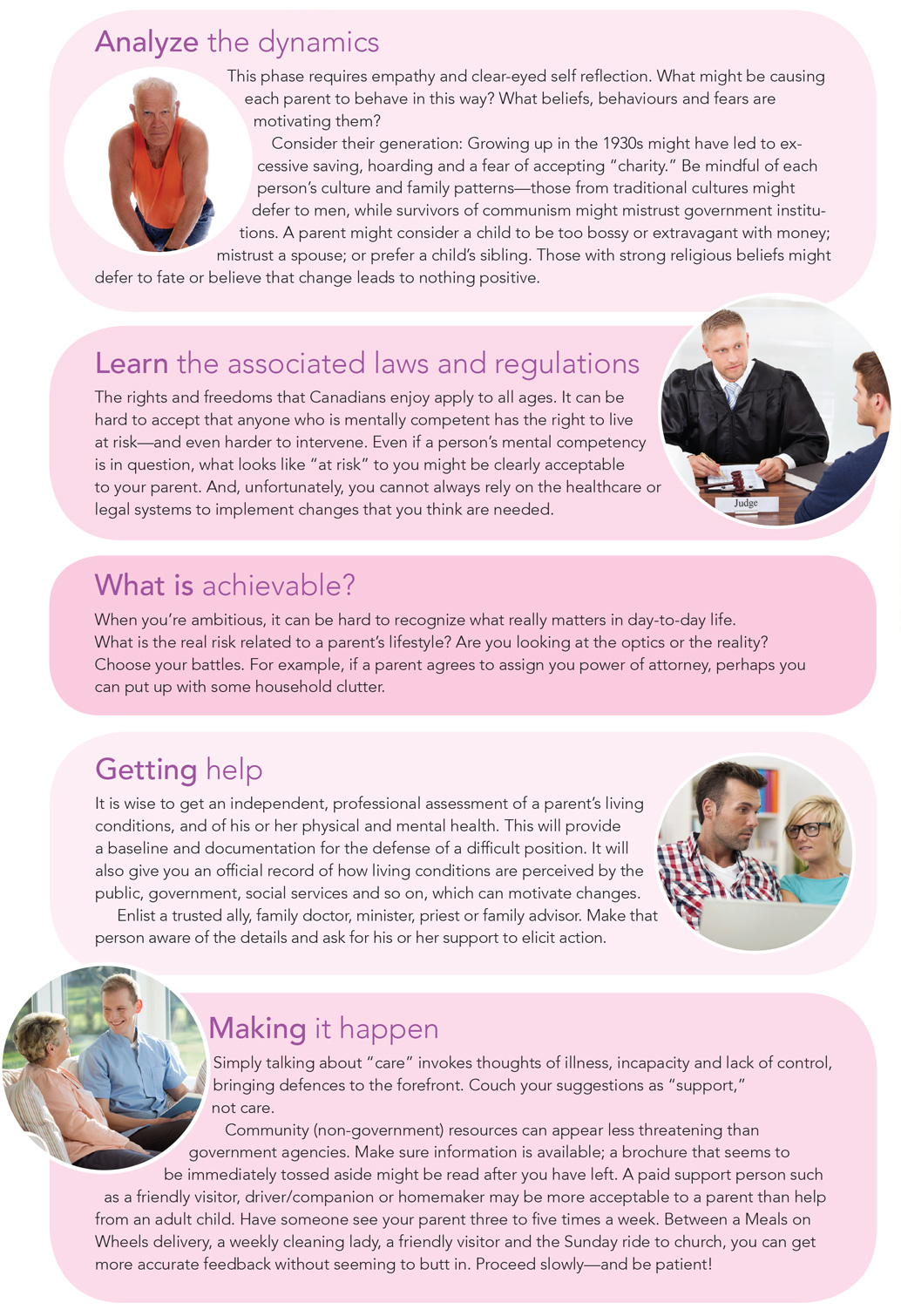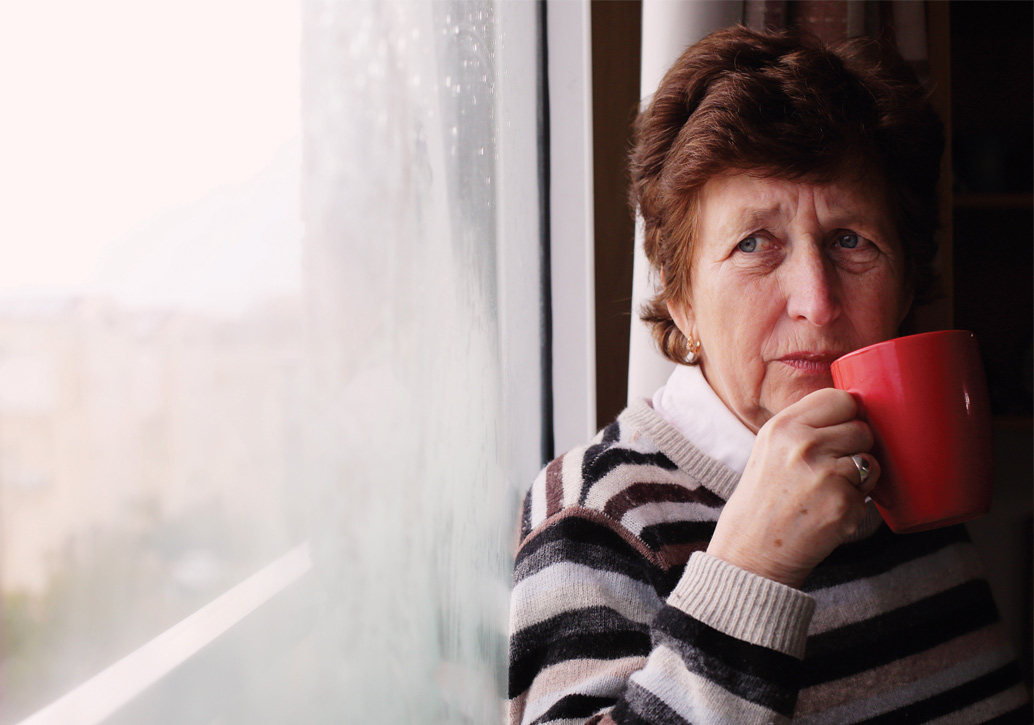Mom’s refusal of help reflects badly on me!
By Pat Irwin
 Remember when your mother spat on a hankie to clean a spot on your face? Yuk! All she was trying to do was make you look clean and tidy, and be a credit to her. At that age, you were an extension of her, and her public image was of a good mother with clean kids!
Remember when your mother spat on a hankie to clean a spot on your face? Yuk! All she was trying to do was make you look clean and tidy, and be a credit to her. At that age, you were an extension of her, and her public image was of a good mother with clean kids!
Fast-forward 40 years or so and life has come full circle. That strong mom who raised you is now aging and needs help, but is adamant in resisting care. And, potentially, she’s going to embarrass and disrupt the success of the very kids she has been so proud of.
Let’s take a look at three adult children and how they address this… 
Sara left home at the age of 15 to escape her widowed, alcoholic mother’s abusive boyfriend. She worked hard in the entertainment industry and became a television producer in Los Angeles. An only child, she lost all contact with her mother until a call 30 years later from the police in her old city. Her mother, still drinking and now homeless, had been sent to hospital with wounds received in a street incident. Somehow, Sara’s mother Louanne had been able to tell the hospital her daughter’s name. Wouldn’t this be fodder for the tabloids—“Producer’s mother lives on the street”?
 Chris, a young lawyer with political aspirations, has tried for years to help her mother Muriel. Over time, she has become a hoarder with a difficult personality who alienates everyone who tries to help. Recent events include a fall, wandering and hospital admission. The last straw was a fire at her neighbour’s home; while trying to evacuate Muriel, the firefighters were hindered by the excessive clutter and condemned her property. Muriel is in temporary lodgings in a retirement home, where she is wearing out her welcome. Muriel’s hospital reports and condemned property could be a source of great embarrassment to Chris, who is considering becoming a candidate in an upcoming municipal election.
Chris, a young lawyer with political aspirations, has tried for years to help her mother Muriel. Over time, she has become a hoarder with a difficult personality who alienates everyone who tries to help. Recent events include a fall, wandering and hospital admission. The last straw was a fire at her neighbour’s home; while trying to evacuate Muriel, the firefighters were hindered by the excessive clutter and condemned her property. Muriel is in temporary lodgings in a retirement home, where she is wearing out her welcome. Muriel’s hospital reports and condemned property could be a source of great embarrassment to Chris, who is considering becoming a candidate in an upcoming municipal election.
Ariele is a respected lawyer in the ministry of justice. She specializes in helping asylum-seekers, refugees and victims of social injustice. Her father Ryaid, raised in the 1930s Depression, is inclined to pinch his pennies. At the moment he resides in his home with a live-in caregiver. He has gone through six caregivers in the last four years. Ryaid resents needing the care, much less paying for it, and chooses cheaper, “under-the table” caregivers who he expects to be available 24/7. But he won’t fund extra groceries for the carer’s meals and houses the carer on a pull-out couch in the television room. How can a professional such as Ariele allow her dad to mistreat people in this way?
in helping asylum-seekers, refugees and victims of social injustice. Her father Ryaid, raised in the 1930s Depression, is inclined to pinch his pennies. At the moment he resides in his home with a live-in caregiver. He has gone through six caregivers in the last four years. Ryaid resents needing the care, much less paying for it, and chooses cheaper, “under-the table” caregivers who he expects to be available 24/7. But he won’t fund extra groceries for the carer’s meals and houses the carer on a pull-out couch in the television room. How can a professional such as Ariele allow her dad to mistreat people in this way?
Aside from the professional reputational concerns for each adult child, these issues are certainly a worry, diminishing peace of mind and presenting health and safety risks. What practical steps can those involved take to break their gridlocks, move ahead and even improve their relationships? Here are some ideas:

Outcomes
Sara made the decision to not become personally involved in her mother’s life. After being estranged for long, she had no knowledge of her mother’s issues, affairs, wishes, and felt she could add no value. She did agree to cover her bills, and hired an eldercare consultant to visit, assess the situation, suggest options and make recommendations. The consultant was of the opinion that Louanne was not mentally competent to manage her own affairs, so it was in her mother’s best interests to become a ward of the public trustee.
Chris decided to use some of her savings to seek professional help in implementing what appeared to be an ambitious plan. A reputable agency supplied three rotating live-in caregivers to keep the house tidy, provide nutritious meals, supervise medication and take Muriel to see friends. Having different individuals work only three days in a
row prevented them from burning out and settle into a more predictable routine. Specific dates for short periods, such as lunch or a movie, made her feel less isolated. Regular cleaning sessions helped keep the hoarding in check. A photo of the two of them even appeared on Chris’ campaign flyer!
Ariele, zeroing in on her father’s anxiety about money, sought help from his trusted financial planner. Her aim was to move her dad into a retirement community that provided shared care so that her father could not hire, fire or mistreat anyone. Ryaid is now on the residents’ council and plays a positive role, always looking into cost-saving for management.
What’s the common element here? Each person looked clearly at his or her dilemma, examined the actions and motivations, and had the wisdom and humility to ask for help from the right sources. Wise advice for us all.
Pat Irwin, BA, AICB, CPCA, is President of ElderCareCanada.














